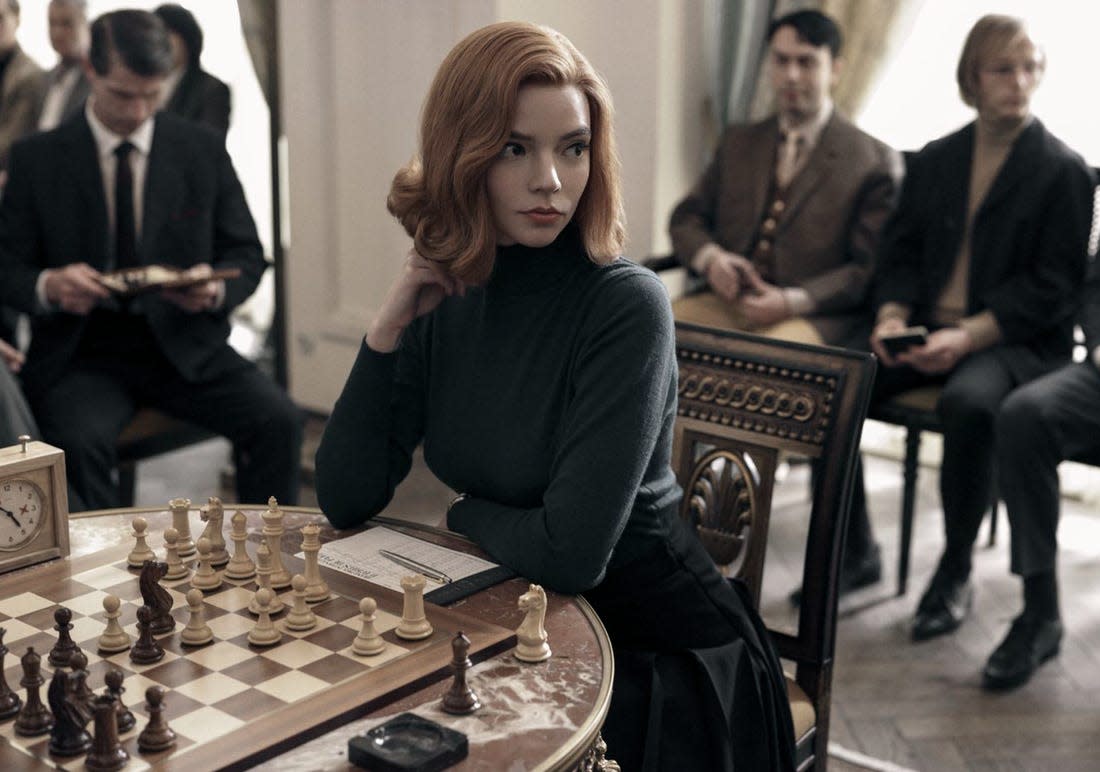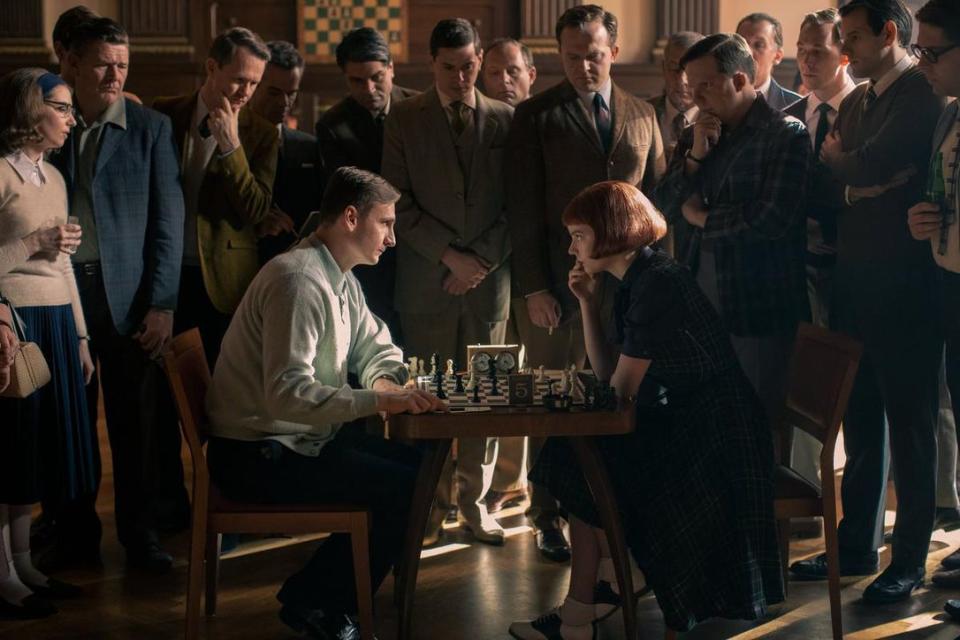Why The Queen’s Gambit is one of Netflix’s best-ever shows

When it comes to women, TV shows and films fail precisely because of their predictability. Woman A has casual sex with Man B, so Woman A falls pregnant/is slut-shamed/gets murdered. Talented women must suffer some kind of trauma, often sexual, to “motivate” them, or to serve as punishment when their talent eclipses that of their male peers. The tropes surrounding women and punishment are so embedded in popular culture that we often know what will happen long before the fact. Or at least, we did until The Queen’s Gambit.
Netflix’s sleeper-hit of a series is one of its best releases to date. Based on the novel by US author Walter Tevis, The Queen’s Gambit stars Anya Taylor-Joy as a young chess prodigy in the Fifties and Sixties. Writer and director Scott Frank, who brought his Godless star Thomas Brodie-Sangster along with him, is a master of pace. He knows precisely when to usher things along to a new chapter, and the moments to linger over. It’s a show to be savoured, rather than binged. But that’s far from the best thing about it.
Taylor-Joy is outstanding as Beth Harmon, who grows up in an orphanage after her mother crashes her car with Beth in the back seat. There, she meets janitor Mr Shaibel, who begins to teach her how to play chess in the basement. Already, you become wary – is this a grooming scenario? Thankfully not. After his initial “girls do not play chess”, Mr Shaibel quickly realises that Beth is a naturally gifted and extraordinary child. Soon she is able to beat him, and then an entire school chess team in less than two hours.
One of the most immediate themes in The Queen’s Gambit is the internalisation, or repression, of women’s emotion – whether that involves hysteria, passion, anger or lust. It’s relevant today, of course, but more so in its Fifties context, where the image of the perfect housewife was so aggressively spread that it was essentially propaganda. At the orphanage, the girls are given tranquilisers to keep them quiet, but Beth learns to use hers to inspire her chess playing (she soon becomes addicted to them). In one scene, she tells a reporter that she loves chess because of the control she feels over the board; the potential to dominate via a predictable pattern of moves. As she grows older and develops her playing style, the choreography of the games grows more and more complex. It’s mesmerising and – as other critics have noted – often quite sexy.
The music serves as a way of reflecting shifting views in both wider society and towards Beth herself. In the Sixties, the soundtrack becomes brighter, mimicking Beth’s own swagger. But there’s another, more subtle but perhaps more brilliant way of reflecting a character’s situation via music. Beth’s depressed adoptive mother plays piano compositions by French composer Erik Satie. Both his Gnossiennes and Gymnopedies are structurally far more complex than their simple-sounding melodies first suggest. In a way they are actually quite aggressive, and passionate, and for Alma Wheatley they are a way of rebelling when she has no other way to feel free. Just as with chess for Beth, the piano is Alma’s way of expressing herself in a world that wants her to repress her emotions.
It’s refreshing, too, that showrunners didn’t force Beth to apologise for her talents. If anything, she is more than happy to discuss her success, or express surprise at just how badly an opponent performed. When schoolboys she challenges approach games with smugness or complacency, she destroys them. She is noted by the press for typically masculine attributes: the fact that she rarely smiles. Her confidence and bloodlust. Even the descriptions of her playing style are terms more typically reserved for men: “Deadly accuracy”, “measured control”. She has no care for the social conventions that expect her to shrink herself in order to fit into a man’s world. She dresses fashionably (the costume design in The Queen’s Gambit is outstanding) and when asked whether this distracts from her game, quips that an adam’s apple must surely be a distraction to male players. And she has the audacity to spy on a trio of Russian grandmasters plotting her demise.

When it comes down to it, though, those grandmasters are just as thrilled by Beth’s genius as they are their own success. So many TV shows and films do men as big an injustice as women by portraying them as jealous or resentful when a woman outperforms them. But why must women with brilliant minds forever be mistreated or misunderstood or isolated in order to be taken seriously? In The Queen’s Gambit, Beth’s early opponents become her friends, later cheering her on and supporting her in the moments she needs it most. A Russian grandmaster tells Beth, who has just defeated him, that he believes he may have just played the best chess player of his life. These men celebrate her talent because they love the game, and they want it to continue. How wonderful that is.
Read more
Relic turns the creeping fear of dementia into unnerving horror
The 40 best original films to watch on Netflix, ranked
The best Amazon Prime and Netflix shows to watch during lockdown


